
Idries Shah, also known as Idris Shah, Indries Shah, né Sayed Idries el-Hashimi and by the pen name Arkon Daraul, was an Afghan author, thinker and teacher in the Sufi tradition. Shah wrote over three dozen books on topics ranging from psychology and spirituality to travelogues and culture studies.
Omar Ali-Shah was a prominent exponent of modern Naqshbandi Sufism. He wrote a number of books on the subject, and was head of a large number of Sufi groups, particularly in Latin America, Europe and Canada.

Sufi studies is a particular branch of comparative studies that uses the technical lexicon of the Islamic mystics, the Sufis, to exemplify the nature of its ideas; hence the frequent reference to Sufi Orders. It may be divided into two main branches, the orientalist/academic and the spiritual.
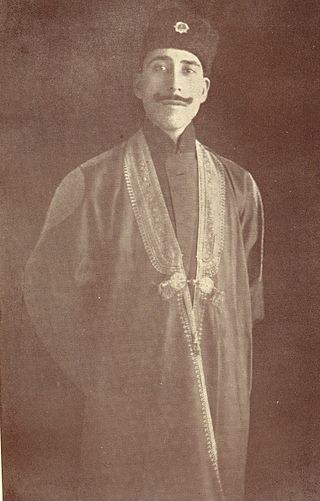
Sirdar Ikbal Ali Shah was an Indian-Afghan author and diplomat descended from the Sadaat of Paghman. Born and educated in India, he came to Britain as a young man to continue his education in Edinburgh, where he married a young Scotswoman.
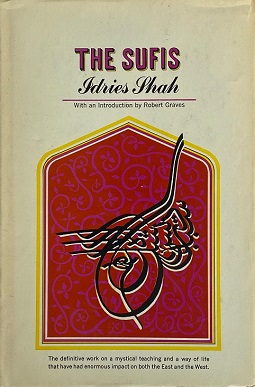
The Sufis is one of the best known books on Sufism by the writer Idries Shah. First published in 1964 with an introduction by Robert Graves, it introduced Sufi ideas to the West in a format acceptable to non-specialists at a time when the study of Sufism had largely become the reserve of Orientalists.
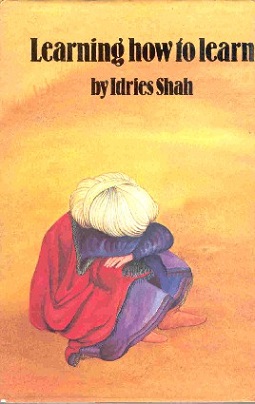
Learning How to Learn: Psychology and Spirituality in the Sufi Way is a book by the writer Idries Shah that was first published by Octagon Press in 1978. Later editions by Harper & Row (1981) and Penguin Books include an introduction by Nobel Prize Winner Doris Lessing.

Knowing How to Know is a book by the writer Idries Shah published posthumously by Octagon Press in 1998. A paperback edition was published in 2000.
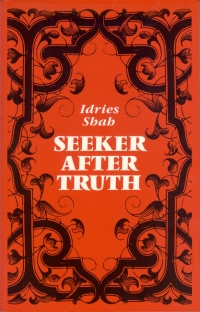
Seeker After Truth: A Handbook was written by Idries Shah, one of the foremost writers on Sufism. It was first published by Octagon Press in 1982, and later republished by The Idries Shah Foundation.

A Perfumed Scorpion is a non-fiction book by the Sufist writer, Idries Shah, that was first published by Octagon Press in 1978, the same year that he published two other major works: Learning How to Learn: Psychology and Spirituality in the Sufi Way and The Hundred Tales of Wisdom. It has since been republished by The Idries Shah Foundation.

The Dermis Probe is a book by Idries Shah published by Octagon Press in 1970. A paperback edition was published in 1989 and again in 1993. The stories presented in the book are also available in an audio format.

The Commanding Self is a book by the writer Idries Shah first published by Octagon Press in 1994. A paperback edition was published in 1997.

First published in 1971, Thinkers of the East: Studies in Experientialism was one of several books of Eastern practical philosophy study materials selected and arranged by Idries Shah for a contemporary readership.

Neglected Aspects of Sufi Study is a book by the writer Idries Shah, published by Octagon Press in 1977. A later edition was published in 2002.

Wisdom of the Idiots is a book of Sufi teaching stories by the writer Idries Shah first published by the Octagon Press in 1969. A paperback edition was published in 1991. ISF Publishing, sponsored by The Idries Shah Foundation, published a paperback edition on 2015, followed by the ebook version and audiobook.
Octagon Press was a cross-cultural publishing house based in London, UK. It was founded in 1960 by Sufi teacher, Idries Shah to establish the historical and cultural context for his ideas. The company ceased trading in 2014.

Destination Mecca is an early book by the writer Idries Shah, who went on to produce an extensive corpus of material on Sufism that is both accessible and relevant to contemporary western readers. It was first published by Rider in 1957, and subsequently by Octagon Press in 1969. Shah had already made a name for himself as the author of two well-researched and in many ways ground-breaking books about magic. However, these scholarly works, and the vastly more influential work, The Sufis, which was to follow in 1964, by their nature entailed keeping his own personality in the background. His intention in this present book appears to be to counterbalance this tendency through his skilful use of the familiar travel book format, and he steps out of the shadows as an approachable young man with a lively mind and a fine sense of humour and adventure – someone who is comfortable in his mid-twentieth century skin and equally at home in Eastern and Western contexts.

The Elephant in the Dark is a book by the writer Idries Shah, based on lectures he delivered at the University of Geneva as Visiting Professor in 1972–1973. He was invited to speak on the topic of “Salvation as a total surrender to God: an attempt at dialogue between Christians and Muslims.”
The Idries Shah Foundation (ISF) is an independent educational and cultural charity, set up by the family of the late thinker, writer, and teacher in the Sufi mystical tradition, Idries Shah, who wrote over three dozen books on topics ranging from psychology and spirituality to travelogues and culture studies.

Lataif-e-sitta are special organs of perception in Sufi spiritual psychology, subtle human capacities for experience or action. Depending on context, the lataif are also understood to be the qualities of consciousness corresponding to those experiences or actions.
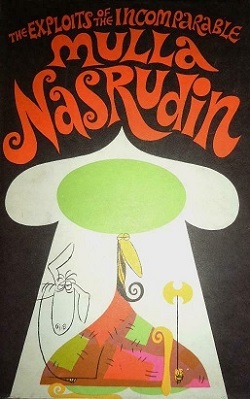
The Exploits of the Incomparable Mulla Nasrudin is a book by the writer Idries Shah, It consists of jokes and anecdotes involving the wise fool of Middle Eastern folklore, Mulla Nasrudin. Published by Octagon Press in 1966, the book was re-released in paperback, ebook and audiobook editions by The Idries Shah Foundation in 2014 and 2015.
















